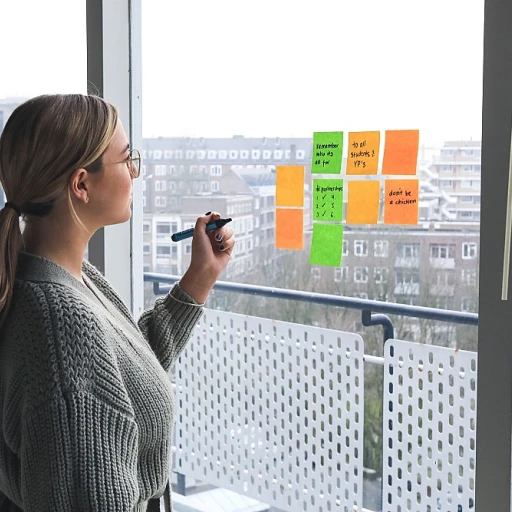
Understanding Development Support Communication
Comprehending the Foundation of Development Support Communication
Effective communication stands at the core of professional mentoring, acting as the bridge that connects mentors and mentees. Understanding Development Support Communication (DSC) is vital, as it encompasses various strategies for fostering growth through strategic and participatory means. DSC is an approach that not only addresses the communication needs within the mentorship framework but also emphasizes the role of communication in driving social change and community development.
At its heart, development support communication is about facilitating the flow of information, ideas, and knowledge. It seeks to empower individuals and communities to actively participate in their development process. This involves using mass media and strategic communication policies to engage different social groups, particularly in rural and community settings. The United Nations defines DSC as a deliberate effort to mobilize people for social development through effective role media and participatory methods.
Within a mentoring framework, understanding DSC helps mentors adopt tailored communication approaches that align with the mentee's context, fostering an environment conducive to growth and development. The ability to adapt communication techniques to address the varying needs of individuals is crucial for achieving successful outcomes.
For a comprehensive understanding, if you are seeking ways to build a successful mentor-student relationship, exploring the fundamentals of development support communication provides a strong foundation. This exploration not only strengthens the mentor-mentee relationship but also enhances the effectiveness of mentorship by cultivating a deeper understanding of communication's transformative power.
Building Strong Mentor-Mentee Relationships
Establishing a Foundation of Trust and Mutual Respect
In the realm of effective professional mentoring, building strong mentor-mentee relationships is crucial. Trust and mutual respect form the cornerstone of these relationships, setting the stage for successful communication and knowledge sharing. Both parties must approach the relationship with an open mind and a commitment to unveiling the key traits of an effective mentor. Creating a safe space where open dialogue can occur is essential for both personal and professional growth.
Fostering Open Lines of Communication
The role of effective communication in the development process cannot be overstated. Establishing clear channels for dialogue permits both the mentor and the mentee to express their needs, aspirations, and challenges effectively. This process, rooted in development communication theories, fosters participation and encourages both parties to engage actively in shared problem-solving and goal setting.
Mutual Understanding and Support
Active listening and empathy are key components of effective communication. These practices are vital when providing development support, as they help both the mentor and mentee to understand each other’s perspectives and contribute to social change. Communication is not merely about exchanging information; it plays a transformative role in shaping how mentor-mentee relationships evolve.
Encouraging Ongoing Feedback and Adaptation
Documenting progress and exchanging feedback are integral parts of mentoring relationships. Continuous communication fosters the social mobilization required to meet development goals. By integrating feedback into the communication process, mentors can better support their mentees and adapt their approaches to meet emerging needs. This support communication is transformative in promoting personal growth and achieving professional milestones within the community.
Overcoming Communication Barriers
Strategies to Overcome Challenges in Communication
Effective communication is the cornerstone of successful professional mentoring. However, mentors and mentees often face various barriers that can impede the development process. To foster a supportive and productive learning environment, it's crucial to identify and overcome these challenges.
Recognizing Common Barriers
Communication barriers in mentoring can stem from several sources including cultural differences, personality clashes, and technological challenges. Understanding the role of a coach-planner can help in navigating these obstacles effectively. Barriers may be subtle, such as differences in communication styles or more overt like language barriers. By clearly identifying and acknowledging these issues early in the mentoring relationship, both mentors and mentees can take proactive steps to address them.
Adaptation and Flexibility
Adaptation plays a critical role in overcoming communication hurdles. Developing cultural sensitivity and understanding different communication styles are essential components of effective mentoring. In many cases, mentors and mentees may belong to diverse communities with unique social and cultural dynamics. Engaging in participatory development, where both parties actively contribute to dialogue and share social development experiences, promotes mutual understanding and growth.
Leveraging Mass Media and Technology
In today’s digital age, leveraging technology can significantly enhance communication in mentoring relationships. Utilizing various media platforms for regular interactions ensures no vital information is lost. Technology serves as a catalyst for social change, paving the way for more inclusive support communication. By using development communication strategies and tools effectively, mentors can transform potential communication barriers into opportunities for innovation and learning.
When mentors strategically employ these solutions, they not only navigate communication barriers but also create a nurturing environment that fosters growth and enhances the learning journey for both parties involved. This aligns with the broader objectives of community development, facilitating a more profound and impactful change through professional mentoring.
The Role of Feedback in Mentoring
The Significance of Feedback in Mentoring Dynamics
Feedback plays a pivotal role in the professional mentoring process, providing an essential mechanism for the exchange of communication between mentors and mentees. Within the scope of development support communication, feedback facilitates the transfer of knowledge and supports effective communication strategies that foster growth and learning.
Incorporating feedback into mentoring not only strengthens development communication but also supports social change and development. By sharing constructive insights, mentors can guide mentees towards achieving their career goals while aligning with effective development processes. This process encourages participation and engagement, crucial elements for nurturing a positive mentoring relationship within communities.
Mentors should aim to deliver feedback in a manner that is supportive and constructive. It is vital for feedback to be honest and relevant, addressing specific aspects that need improvement while recognizing achievements. Engaging in a balanced feedback loop helps to maintain motivation and encourages ongoing development within a mentoring relationship.
By utilizing approaches in strategic communication, mentors can create an environment that is conducive to learning. Drawing on principles of participatory development and mass communication, mentors can ensure that their feedback remains accessible and applicable, harnessing the potential of various media platforms to reach a broader audience.
Moreover, the role of feedback as a tool for social mobilization underscores its significance in the broader spectrum of development communication. Mentors and mentees, by engaging in effective feedback exchanges, contribute actively to the communication dsc, reflecting its importance in social and community development initiatives.
Cultural Sensitivity in Communication
Embracing Cultural Diversity in Mentoring
In the realm of professional mentoring, cultural sensitivity is not just a nice-to-have; it's a necessity. As mentors and mentees often come from diverse backgrounds, understanding and respecting cultural differences can significantly enhance the mentoring process. This is particularly important in today's globalized world, where development communication and social change are deeply intertwined with cultural nuances.
Effective communication in mentoring requires an awareness of how cultural backgrounds influence perceptions and interactions. For instance, some cultures may value direct communication, while others may prefer a more indirect approach. Recognizing these differences is crucial for building strong mentor-mentee relationships and ensuring that the communication process is both respectful and productive.
Strategies for Culturally Sensitive Communication
- Educate Yourself: Take the time to learn about the cultural backgrounds of your mentees. This can involve understanding their social norms, values, and communication styles. Such knowledge can facilitate more meaningful interactions and support the development process.
- Encourage Open Dialogue: Create a safe space for mentees to express their cultural perspectives. Encouraging participation and open dialogue can help bridge cultural gaps and foster a sense of community and belonging.
- Adapt Communication Styles: Be flexible in your communication approach. Tailor your communication strategies to align with the cultural preferences of your mentees, whether it involves using mass media or more personal, face-to-face interactions.
By integrating cultural sensitivity into mentoring, mentors can play a pivotal role in promoting social development and community engagement. This approach not only enhances the effectiveness of mentoring but also contributes to broader social mobilization and change.
Leveraging Technology for Better Communication
Integrating Technology for Enhanced Interaction
In today's world, leveraging technology is essential for effective communication in professional mentoring. The utilization of digital tools can greatly facilitate the development of mentoring relationships, offering a platform for communication, knowledge sharing, and ongoing support.
Firstly, technology provides a comprehensive platform for communication between mentors and mentees. This includes various channels such as emails, instant messaging apps, and video conferencing tools that allow real-time interaction. The role of social media in this context cannot be overstated, as it helps build community connections and facilitates social mobilization within professional circles.
Furthermore, online document sharing platforms can enhance the development process by allowing participants to easily access shared resources, track progress, and collaborate on projects. This supports a participative approach, enabling both mentors and mentees to actively engage in the mentoring process.
Mass media and mass communication are also effective in providing awareness and reach to larger communities. These tools can bring forth strategic communication initiatives that enhance understanding and promote social change, particularly in rural and underserved areas.
Additionally, development communication theories emphasize that leveraging technology enables participation at a broader scale, promoting community development and social development. By using technology, mentors and mentees can transcend geographical barriers and time constraints, bridging communities and aligning with the goals of participatory development and development support communication policies.
For technology to play an effective role, both parties in the mentoring process must embrace and adapt to the available media developments, ensuring that technology aligns with the mentoring objectives. It necessitates an ongoing assessment of the communication policy being employed to ensure it remains relevant and supportive of social change initiatives.













